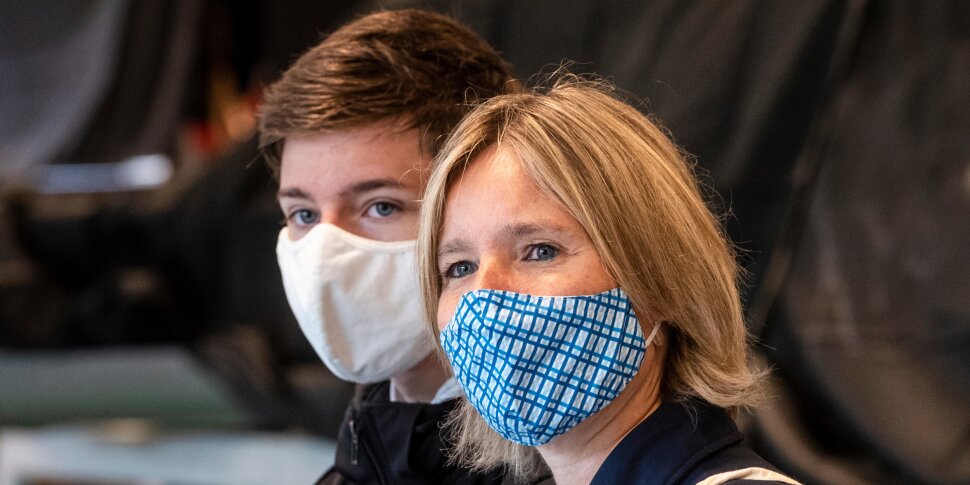Thanks to everyone
The UAntwerp corona study was completed more than three million times. We would like to thank everyone who has participated in the study and completed the survey one or several times, helping to guide policy and providing insights into how this lockdown has been experienced. On 29 March 2022, you could participate for the forty-sixth and last time.
About the citizen science project
At midnight on Friday 13 March 2020, a number of drastic measures were launched to counter the spread of COVID-19, also known as the coronavirus. In March and April, the measures were tightened up even further. Throughout May they were gradually relaxed, and the lockdown was eased on 8 June.
The impact of the measures were only visible in the hospitalisation rates 10 to 14 days after they were launched. This was due to the incubation period and how COVID-19 was progressing. In order to be able to respond to evolutions quickly, experts needed indicative population data.
There was an urgent need to know how the population was coping with the crisis, not least in order to be able to predict the further evolution of the epidemic, to help the hospitals assess what was going to happen, and to monitor the well-being of the population. This was especially important when the measures had been relaxed.
Social scientists from the University of Antwerp were helping medical experts to process the answers. This citizen science project was also running thanks to the assistance of colleagues from KU Leuven and Hasselt University.
Some more information
The Grote Coronastudie (Great Corona Study) was launched by the University of Antwerp in March 2020, at the onset of the COVID-19 pandemic. Its primary goal was to gather rapid, large-scale data from the Belgian population to support public health decision-making. By collecting insights into how people experienced the pandemic and responded to government measures, the study aimed to inform and adjust policies in real time. It was a citizen science initiative, meaning the public actively contributed to scientific research, and it became one of the largest of its kind in Belgium, with over three million responses
The study was structured as a recurring online survey, initially conducted weekly and later less frequently as the pandemic evolved. Participants were asked to share their experiences, behaviors, and opinions regarding various aspects of the pandemic. The study was a collaborative effort between the University of Antwerp, KU Leuven, UHasselt, and ULB, with support from the Research Foundation – Flanders (FWO). The interdisciplinary approach combined expertise from medical and social sciences to analyze the data and provide timely insights to policymakers and healthcare professionals
Topics covered in the Grote Coronastudie included mental well-being, compliance with health measures, attitudes toward vaccination, experiences with remote work, and broader societal impacts of the pandemic. The study also explored how different population groups were affected, highlighting inequalities in how people coped with lockdowns and restrictions. Over time, the data helped track shifts in public sentiment and behavior, offering a valuable resource for understanding the social dynamics of the crisis and preparing for future public health challenges.
Contact information for data
If you would like to discuss using data from the GCS, you can contact us via koen.pepermans@uantwerpen.be
